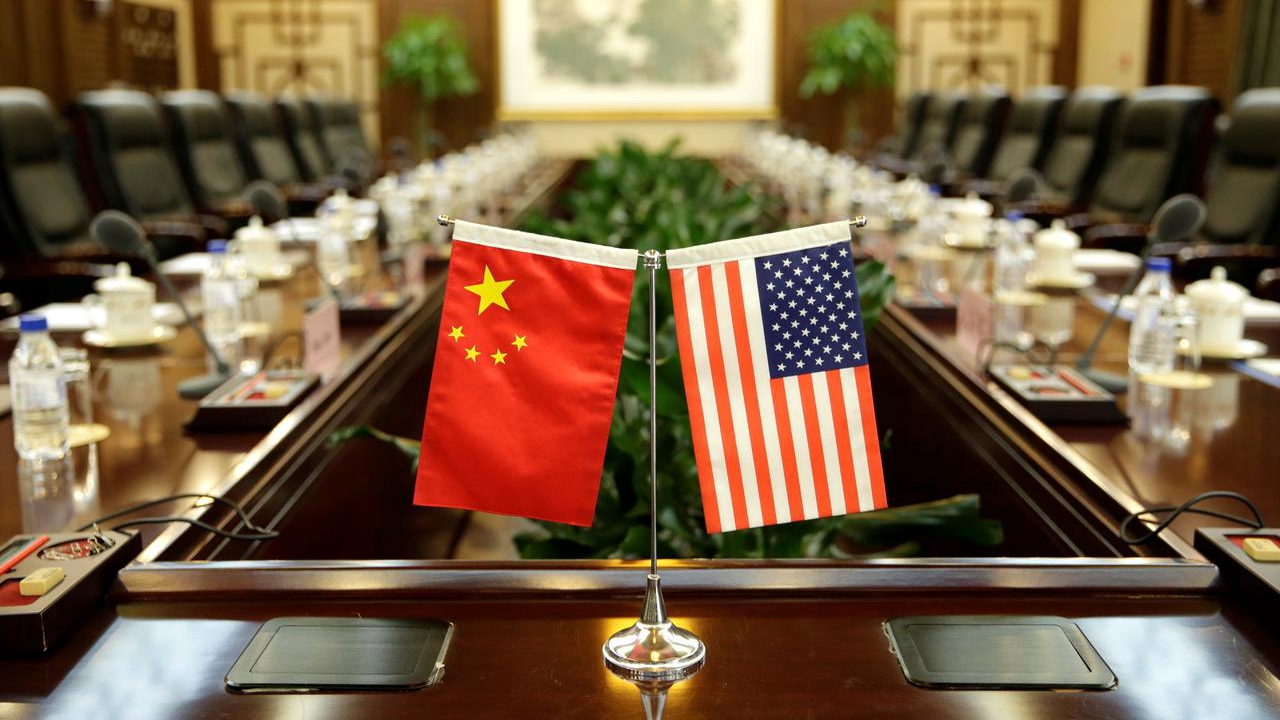The United States said on Friday it would add 33 Chinese firms and institutions to an economic blacklist, citing "national security" and "human rights" issues.
The U.S. Commerce Department said in a statement that it will add 24 Chinese governmental and commercial organizations to the Entity List "for engaging in activities contrary to the national security or foreign policy interests of the United States."
The department also blacklisted seven Chinese companies and two institutions, accusing them of alleged involvement in "human rights violations" against ethnic groups in west China's Xinjiang Uygur Autonomous Region.

National flags of China and the U.S. are seen on a table prepared for a meeting between U.S. Secretary of Agriculture Sonny Perdue and China's Minister of Agriculture Han Changfu in a Ministry of Agriculture meeting hall in Beijing, China, June 30, 2017. /Reuters
National flags of China and the U.S. are seen on a table prepared for a meeting between U.S. Secretary of Agriculture Sonny Perdue and China's Minister of Agriculture Han Changfu in a Ministry of Agriculture meeting hall in Beijing, China, June 30, 2017. /Reuters
The listings include Qihoo360, a major Chinese cybersecurity firm taken private and delisted from the Nasdaq in 2015; Softbank Group Corp-backed CloudMinds that operates a cloud-based service to run robots; Center for High Pressure Science and Technology Advanced Research, Harbin Engineering University and Harbin Institute of Technology.
Being listed on the Entity List will result in restrictions over sales of U.S. goods shipped to the companies and some more limited items made abroad with U.S. content or technology. Companies can apply for licenses to make the sales, but they must overcome a presumption of denial.
In an online statement from Qihoo360, the largest cybersecurity firm in China noted that it firmly opposes this irresponsible accusation, lacking any credible evidence, and opposes the U.S. Commerce Department's move to politicize commercial activities and technological R&D.
According to Qihoo360, the 360 Cyber Security Brain, an advanced system that does intelligent upgrades of cybersecurity defenses developed by the company, has helped Apple, Google, and Microsoft discover thousands of security vulnerabilities and indirectly protect global netizens. The system has been highly praised by these companies. The 360 Security Brain has also helped U.S. law enforcement agencies on the crackdown on global cybercrime attacks and is now widely recognized at the global stage.
Also, the U.S. itself has always been hell-bent on spying. Qihoo360 announced in a brief blog post on March 2 this year that it compared the discovered malware samples with a large number of CIA digital spy tools released by WikiLeaks in 2017 and discovered spying by the CIA hacking group (APT-C-39), and this as been going on for 11 years against China.
CloudWalk Technology, a Guangzhou-based developer of facial recognition software for the financial, public security and aviation sectors, said the company has made contingency plans regarding the move.
"CloudWalk conducts business activities on the basis of strictly abiding by the laws and regulations of relevant countries and regions," the company said. "CloudWalk has continued to maintain good cooperative relations with ecological partners in China and other countries and jointly provide better services to users."
The company said it will maintain active communication with all parties "to ensure fair and equitable treatment."
The actions to expand the Entity List follow the same blueprint used by Washington in its attempt to limit the influence of the world's top telecom giant Huawei Technologies for what it says are national security reasons. Last week, the U.S. took action to try to further cut off the Chinese company's access to chipmakers.
Read more: China resolutely opposes U.S. action against Huawei
Targeting China's tech industry
"The U.S. suppression targets not only Chinese enterprises but focuses more on industries," Bai Ming, deputy director of the Academy of International Trade and Economic Cooperation in the Ministry of Commerce, told CGTN. "The U.S. tactic to strike the Chinese technology industry shows the characteristics of 'a combination blow,' among which non-business purposes become pronounced, sacrificing even the United States' interest."
"Do not think the U.S. is only targeting tech giants like Huawei, it is also plotting to round up small and medium-sized ones that have potential to become bigger and stronger and knock them off collectively," Bai added.
Bai said the U.S. is escalating a trade fight because it wants to remove China from high-end manufacturing and keep the country locked in low- and mid-end production. "Particularly in high-end manufacturing, the U.S. especially does not want China to enter this arena."
"Especially with the way Chinese companies are developing, the U.S. sees them as a threat instead of looking to cooperate to create something bigger and better. The U.S. does not see it as a cake to be shared, but emphasizes more on wanting to have the whole cake for itself," Bai said.
The new listings follow a similar October 2019 action when the U.S. added 28 Chinese public security bureaus and companies – including some of its top artificial intelligence startups and video surveillance firms.
China's Ministry of Commerce in October expressed "strong opposition" to the U.S. blacklisting of Chinese firms on human rights accusations, saying it was smearing China's domestic policies aimed at preventing terrorism and improving the local economy in Xinjiang.
Read more: China refutes U.S. entities blacklist over so-called abuse in Xinjiang